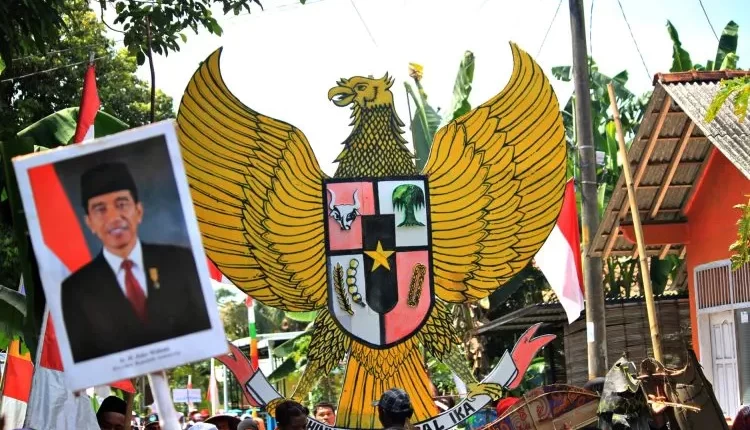G20 Indonesia’s Opportunity to Realize National Interest
By : Dinda Saputri )*
Indonesia as an emerging country that is included as a member of the G20, needs to continue and strengthen its participation to color globalization policies that are not only dominated by large countries. The G20 is the main forum group of international economic cooperation consisting of countries with major economies in the world consisting of 19 countries and 1 European Union institution. Therefore, the policies produced by the G20 become relevant in terms of decision-making.
In the G20, there are two pillars of discussion, namely the financial pillar (Finance Track) and the pillar related to economic issues and non-financial development (Sherpa Track). Each pillar in question has a working group called Working Groups, one of which is related to tax policy.
Economic observer of Udayana University Bali, I Nyoman Mahaendra Yasa said that the number of G20 activities made many foreign nationals come to Bali, both as tourists, media and representatives of delegations of participating countries so as to increase state revenues from the tax sector and state foreign exchange. The G20 has spurred the Organisation for Economic Co-operation and Development (OECD) to encourage the exchange of tax-related information to end tax avoidance.
According to Mahaendra, amember of the G20 forum, Indonesia benefits from early information and knowledge about global economic developments, potential risks faced, and economic policies implemented by other countries, especially developed countries. Thus, Indonesia is able to prepare the right and best economic policies. In addition, Indonesia can also fight for national interests with international support through the G20 forum.
Deputy for Coordination of International Economic Cooperation of the Coordinating Ministry for Economic Affairs, Dr. Ir. Rizal Affandi Lukman, MA explained that one of indonesia’s benefits in G20 membership is that it is a strategic means to extrapolate national interests through economic diplomacy and display various domestic achievements that have existed so far. Membership in the G20 has placed Indonesia as one of the key players in the global economy that has helped determine the economic policy framework in this world. The assessment is based on indicators that as the only ASEAN country in the G20, Indonesia can strengthen its leadership position in the region and become a bridge for the collective voices of other ASEAN countries.
The former Head of the Investment Coordinating Board (BKPM) and Deputy Minister of Foreign Affairs who was elected as Chairman of the Board of Commissioners of the Financial Services Authority (OJK) explained that lndonesia has a concrete role in the G20 forum and realizes the aspirations and ideals of the Indonesian nation as stated in the 1945 Constitution. Indonesia’s strategic role as the holder of the G20 Presidency is an opportunity to show the world good crisis management as well as being an example of other countries in the midst of the crisis storm that hit dunia through major reforms with the passage of the Job Creation Law, such as economic growth, job creation and so on.
Meanwhile, the Director General of State Assets (DJKN) of the Ministry of Finance, Rionald Silaban emphasized that the G20 plays a role as a means of encouraging the optimization of state revenues and strengthening the government’s budget posture. This can be created through an automatic exchange of information (AEoI) agreement.
Rionald added that Indonesia’s participation in the G20 this year was also used by the Government of Indonesia to share experiences in managing digital transformation. This is in line with the government’s efforts to increase people’s incomes, which in turn will narrow economic disparities, encourage equity, increase digital literacy and accelerate micro, small and medium enterprises (MSMEs).
Minister of Communication and Informatics, Johnny Gerard Plate, S.E. said that Indonesia’s G20 Presidency is a momentum for the government to develop inclusive digital transformation. Indonesia’s opportunity as a developing country to balance discussions dominated by developed countries or industrialized countries, in order to build fairer world governance. Indonesia will carry a variety of deliverables in the form of issue enrichment, policy discussions, and tangible output to encourage the development of Indonesia’s digital sector.
Minister Johnny said that to realize this target, Indonesia took a collaboration strategy at the international and national levels. At the international level, the Digital Economy Working Group (DEWG) is a means of discussion and potential cooperation with G20 member countries and international organizations. Meanwhile, at the national level, dewg G20 collaborates with ministries and institutions supporting G20 working groups and engagement groups, academics, industry players, and other stakeholders. This effort is carried out by developing fairer digital governance with balanced discussions between developing countries and developed countries or industries. Indonesia will fight for the development of the digital sector for Indonesia and developing countries.
According to Minister Johnny, by looking at cross-border data flow, Indonesia needs a protocol that regulates cross-border data governance, where data is extraterritorial, extrajudicial, not only within the border environment but crosses from the national border. Then a protocol is needed that is one method or one document that regulates the important principles of cross-border data flow. although the principle of reciprocity is not an easy thing, but Minister Johnny thinks that many countries want and allow the data of their friendly partners to enter their countries. However, by limiting people’s data and their country’s data to be able to or cross into partner countries.
Through the G20, Indonesia has the opportunity to realize national interests , especially in the digital economy transformation sector, exit strategies to support a just recovery, scarring effect to secure future growth, payment systems in the digital era, sustainable finance, financial inclusion, and international taxation with international support.
)* The author is a contributor to the Pertiwi Institute
